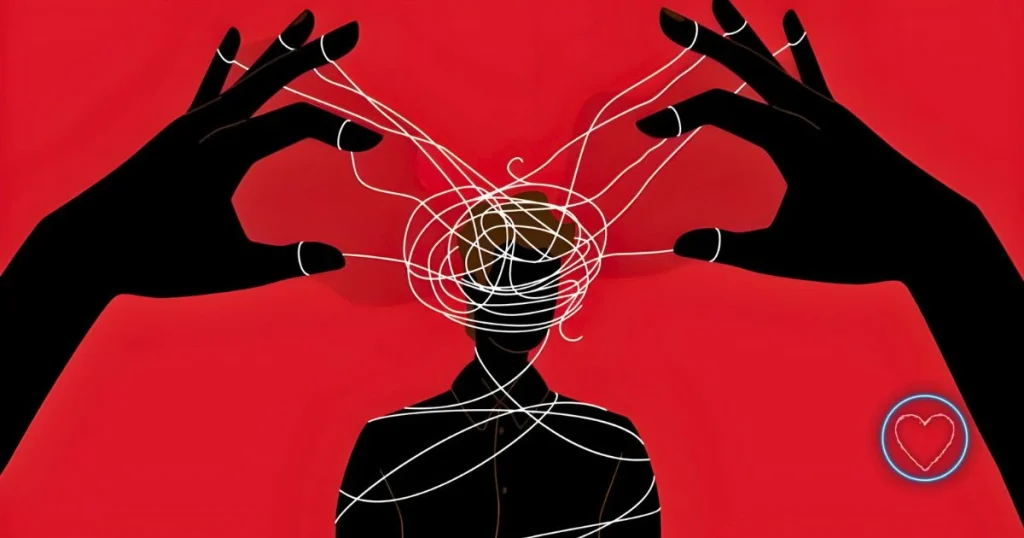In a world flooded with relationship advice, personality quizzes, and compatibility tests, one factor consistently stands out as the true key to lasting love: emotional intelligence (EQ). While physical attraction, shared interests, and financial stability certainly play roles in romantic success, it is emotional intelligence that allows couples to navigate the inevitable storms of life together.
Unlike IQ, which measures cognitive abilities, emotional intelligence governs how we manage our emotions, understand others, and respond empathetically. In love, EQ becomes the invisible thread that binds two people, enabling them to build trust, resolve conflicts, and grow closer over time.
Without emotional intelligence, even the most passionate relationships can crumble under pressure. But with it, couples create an unshakable foundation that not only survives hardships but transforms them into opportunities for deeper connection.
Let’s explore why emotional intelligence is truly the secret ingredient to lasting happiness in love.
Understanding Emotional Intelligence in Relationships
At its core, emotional intelligence consists of several essential skills:
- Self-awareness
- Self-regulation
- Empathy
- Social skills
- Motivation
When applied to relationships, these skills create a safe, nurturing space where both partners feel seen, heard, and valued.
1. Self-Awareness
Self-awareness allows you to recognize your own emotional triggers, needs, and patterns. In love, this means understanding why certain situations upset you, recognizing your role in conflicts, and being honest about your expectations.
Couples who possess self-awareness are better equipped to communicate their feelings calmly rather than reacting impulsively. They can say, “I feel insecure when…” instead of lashing out or withdrawing, preventing misunderstandings before they escalate.
2. Self-Regulation
Emotional intelligence isn’t about eliminating negative emotions — it’s about managing them constructively. Self-regulation allows you to pause, reflect, and respond thoughtfully rather than reacting out of anger, fear, or frustration.
In relationships, self-regulation prevents heated arguments from turning into destructive fights. It helps partners avoid saying things they’ll later regret, keeping respect intact even during disagreements.
3. Empathy
Empathy — the ability to understand and share another person’s feelings — is the heart of emotional intelligence in love. It allows partners to truly connect, offering comfort during pain, celebrating victories, and validating emotions without judgment.
Empathy transforms communication. Instead of focusing on “winning” arguments, empathetic partners focus on understanding each other’s perspectives, fostering compassion and closeness.
4. Social Skills
Strong social skills help couples navigate complex dynamics with grace. This includes active listening, effective conflict resolution, and the ability to communicate needs openly and respectfully.
Couples with high EQ know how to have difficult conversations without blame or defensiveness. They use “I” statements, stay solution-focused, and remain emotionally attuned throughout the discussion.
5. Motivation
Finally, emotional intelligence fuels the motivation to nurture the relationship. Partners with high EQ are committed to growth, both individually and as a couple. They take responsibility for their emotional well-being and invest in the partnership with intentional effort.
Why Emotional Intelligence Predicts Relationship Success
Many couples assume that love is enough to sustain a relationship. But emotions — even strong ones — can be volatile and unpredictable. Emotional intelligence provides the tools needed to navigate the ups and downs of love with stability.
Conflict Becomes Constructive
Every couple experiences conflict. The difference between healthy and toxic relationships lies in how those conflicts are handled.
Emotionally intelligent couples view conflict as an opportunity to understand each other better. They approach disagreements with curiosity rather than blame, seeking resolution rather than victory.
Instead of saying, “You never listen to me,” they say, “I feel unheard when we discuss this. Can we find a way to communicate better?”
Emotional Safety Is Prioritized
Emotional safety — the sense that you can be vulnerable without fear of judgment or attack — is crucial in lasting relationships. High EQ partners create a safe emotional environment where both feel comfortable expressing fears, desires, and insecurities.
This emotional safety allows for deeper intimacy, trust, and resilience in the face of life’s challenges.
Resilience Grows Stronger
Life inevitably throws curveballs — job loss, illness, financial strain, or personal disappointments. Emotional intelligence equips couples with resilience, allowing them to face adversity together rather than falling apart under pressure.
Emotionally intelligent partners comfort each other, adapt to changing circumstances, and maintain perspective during difficult times.
Prevents Emotional Baggage
Unresolved issues often fester in relationships, leading to resentment and distance. High EQ couples address problems as they arise, preventing emotional wounds from accumulating.
They know how to apologize sincerely, forgive genuinely, and move forward without holding grudges.
The Silent Damage of Low Emotional Intelligence in Love
When emotional intelligence is lacking, even deeply loving relationships can deteriorate over time. Common symptoms of low EQ in relationships include:
- Frequent misunderstandings
- Escalating arguments
- Passive-aggressive behavior
- Emotional withdrawal
- Inability to resolve conflicts
- Growing resentment
- Feelings of emotional loneliness
In such relationships, partners may feel trapped in cycles of blame, defensiveness, and emotional disconnection. Over time, this emotional neglect erodes trust and intimacy, often leading to breakup or divorce.
Building Emotional Intelligence Together
The beauty of emotional intelligence is that it’s not fixed; it can be developed over time with intention and practice. Couples who commit to growing their EQ together often experience profound transformations in their relationship.
1. Practice Active Listening
Listening is not waiting for your turn to speak — it’s fully engaging with your partner’s words, tone, and emotions. Put away distractions, make eye contact, and offer verbal and non-verbal cues that show genuine interest.
Ask clarifying questions and reflect back what you hear to ensure understanding.
2. Name and Validate Emotions
Get comfortable identifying and naming emotions — both your own and your partner’s. Instead of dismissing feelings, validate them. You don’t have to agree with someone’s emotions to acknowledge that they’re real and important.
Saying, “I understand that you’re feeling overwhelmed,” goes much further than, “You’re overreacting.”
3. Cultivate Self-Awareness
Regularly check in with your own emotions. Journaling, mindfulness, and therapy can help you identify triggers and patterns that influence your reactions.
By understanding your emotional landscape, you gain greater control over your behavior in difficult moments.
4. Master the Art of Apology
High EQ couples know how to apologize sincerely. A good apology includes:
- Acknowledging what you did wrong.
- Taking responsibility without deflecting.
- Expressing genuine remorse.
- Committing to change.
Avoid phrases like “I’m sorry you feel that way,” which shift blame rather than take accountability.
5. Foster Empathy
Actively work to see situations from your partner’s perspective. Ask yourself, “How might they be feeling right now?” This habit fosters compassion and helps de-escalate tension during conflicts.
Emotional Intelligence in Long-Term Love
As relationships mature, emotional intelligence becomes even more crucial. Early infatuation eventually fades, leaving behind the day-to-day reality of partnership. In this phase, EQ becomes the glue that holds couples together.
- When children enter the picture, EQ allows parents to co-parent with patience and understanding.
- During career transitions, EQ helps partners support each other’s ambitions and fears.
- In times of grief, EQ enables couples to comfort one another without judgment or pressure.
- As aging brings health challenges, EQ fosters empathy and care during vulnerable times.
Couples with strong emotional intelligence don’t just survive these transitions — they grow closer because of them.
The Ripple Effect of Emotionally Intelligent Love
The benefits of emotional intelligence in love extend far beyond the couple themselves. Emotionally intelligent partnerships model healthy communication and conflict resolution for children, friends, and extended family.
These couples create a ripple effect, spreading emotional safety and stability throughout their social circles. Over time, they help normalize vulnerability, empathy, and emotional maturity in their communities.
Conclusion: The Lasting Power of Emotional Intelligence
Passion may spark a relationship, but emotional intelligence sustains it. In a world where love stories often begin with fireworks and end with heartbreak, EQ offers couples a roadmap to enduring happiness.
When both partners commit to self-awareness, empathy, and healthy communication, they build a relationship capable of weathering any storm. Conflicts become growth opportunities, vulnerabilities become pathways to intimacy, and everyday life becomes a shared journey rather than a battleground.
Emotional intelligence isn’t just the secret ingredient to lasting happiness in love — it is the very foundation upon which true, resilient, and deeply fulfilling love is built.




















